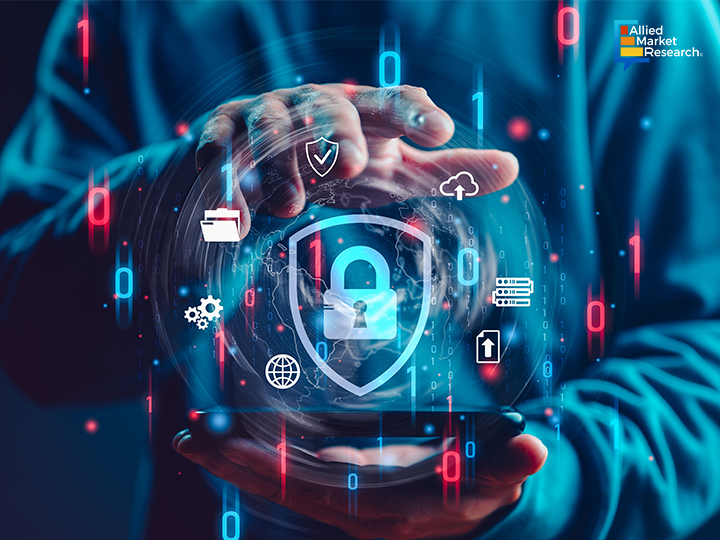How Is Artificial Intelligence Changing the Cyber Security Landscape?

15 Jan
2025
Artificial intelligence helps cyber security teams automate repetitive tasks, accelerate threat detection and response, and improve the accuracy of their actions. This strengthens the security system against various threats and attacks. Several AI methods, such as machine learning techniques to comprehend and analyze cybersecurity data, are employed to monitor network environments and actively combat cyber threats. This significantly reduces human error and prepares systems to combat sudden, unknown threats through adaptive learning. The article briefly attempts to understand the impact of AI integration in cybersecurity.
Driving cybersecurity with speed and precision through AI
Cybersecurity is an industry that is inherently dependent on speed and precision to be effective, both intrinsic characteristics of AI. Security teams need to know exactly where to look and what to look for. They depend on the ability to move fast and act swiftly. Almost 68% of responders to cybersecurity incidents reflect it is common to respond to multiple incidents simultaneously. There is also more data flowing through an enterprise than ever before, and that enterprise is complicated. Edge computing, the Internet of Things, and remote needs are transforming modern business architectures, creating mazes with significant blind spots for security teams.
Threat detection and prevention through continuous learning
AI algorithms have the potential to analyze large volumes of data to identify patterns and anomalies that indicate potential cyber-attacks. AI is also known for detecting threats in real-time to allow for quicker and more effective responses. Machine learning plays an important role in real-time threat detection and prevention by continuously learning from new data. It also provides better accuracy and adaptability against evolving cyber threats. IBM has brought AI capabilities such as these natively into its threat detection and response technologies through the QRadar Suite. These key AI capabilities are now combined through a unified analyst experience that cuts across all core SOC technologies, making them easier to use across the entire incident lifecycle. According to Darktrace, nearly 74% state that AI-powered threats are now a significant issue in AI in cybersecurity. Almost 89% anticipate AI-powered threats to remain a major challenge in the foreseeable future, not just for the next one to two years, highlighting the importance of AI in cyber defense. According to Allied Market Research, AI-driven solutions automate responses to threats, reducing response times and minimizing damage. This is expected to significantly contribute to the growth of the cyber security market.
Fujitsu develops the world’s first multi-AI agent security technology to fight new threats
Fujitsu announced in 2024 that it has developed a multi-AI agent security technology as a core technology of its AI service Fujitsu Kozuchi. The system coordinates multiple AI agents with different specialties to simulate cyberattacks, protection strategies, and business continuity measures, thereby helping companies and public organizations develop and enact proactive security measures against new threats and vulnerabilities. The system is comprised of three main technologies including security AI agent, multi-AI agent collaboration, and generative AI security enhancement.
Fujitsu is projected to commence field trials of the technology for generative AI security enhancement in partnership with Cohere Inc., beginning December 2024. It plans to release part of the multi-AI agent collaboration technology as open-source software (OSS) on OpenHands, an AI agent platform developed with the strong support of AI research world leader Carnegie Mellon University, in January 2025. Starting in March 2025, the full suite of technologies will be rolled out globally and offered on a trial basis.
Endnote
The combination of AI and automation unlocks tangible benefits for speed and efficiency, which are desperately needed in today’s SOCs. After years of being put to the test, and with their maturity now at hand, AI innovations can optimize defenders’ use of time—through precision and accelerated action. The more AI is utilized across security, the faster it is expected to drive security teams’ ability to perform and the cybersecurity industry’s resistance and readiness to adapt to whatever lies ahead.

Koyel Ghosh
Author’s Bio- Koyel Ghosh is a blogger with a strong passion and enjoys writing in miscellaneous domains, as she believes it lets her explore a wide variety of niches. She has an innate interest in creativity and enjoys experimenting with different writing styles. A writer who never stops imagining, she has been serving the corporate industry for the last five years.
Enterprise Resource Planning (ERP): Analyzing the Role of Emerging Technologies in the Growth of the Industry
Avenue: Entire Library membership of Allied Market Research Reports at your disposal
- Avenue is an innovative subscription-based online report database.
- Avail an online access to the entire library of syndicated reports on more than 2,000 niche industries and company profiles on more than 12,000 firms across 11 domains.
- A cost-effective model tailored for entrepreneurs, investors, and students & researchers at universities.
- Request customizations, suggest new reports, and avail analyst support as per your requirements.
- Get an access to the library of reports at any time from any device and anywhere.
Related Post
-
How are Submarine Cables Transforming Global Connectivity with Enhanced User Experience?
-
Endoscopy Procedures: Transformations in Techniques and Applications
-
AI-Powered Video Analytics: How the Product Actually Works for enterprises
-
Painting Robots: Transforming Precision Coating and Creative Applications
-
Innovations in Pharmacovigilance Systems Advancing Patient Safety
-
Understanding Edge Security: Keeping Data Safe Near the Source
-
Exploring the Use and Advancements of 3D Laser Scanners in Professional Applications
-
Reinforcing Industrial Controls with Smarter Tools and Training








